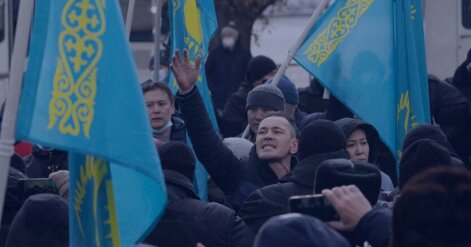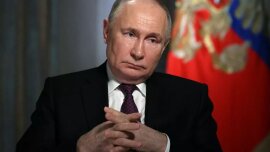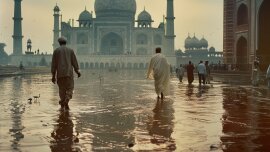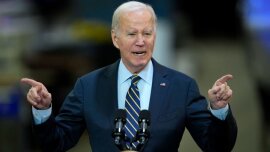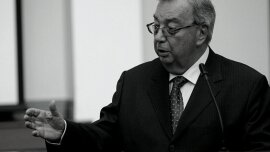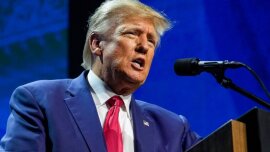An absurd and ruthless riot continues in Kazakhstan for the fourth day. Those who still had time to read Pushkin in the original, remember his immortal phrase about the "senseless and ruthless Russian revolt" - from the story "Captain's Daughter", which takes place in the Orenburg region on the border with modern Kazakhstan. The distance from Orenburg to the city of Aktobe, one of the centers of the current riots in Kazakhstan, is less than 300 km. From 1920 to 1925, Orenburg was even the capital of the Kyrgyz Autonomous Soviet Socialist Republic, which, ironically, was a Kazakh national autonomy within the Russian Federation. But so far it is not about history, but about the fact that Pushkin most accurately and succinctly described the essence of the current riots in the largest state in Central Asia.
Spontaneous, without any clearly defined requirements, without leaders with whom you can agree on something, and extremely violent revolt certainly pours water on the mill of autocrats. Because when the world sees a morgue full of corpses, dozens of burnt cars on the streets of Kazakh cities, dismantled ATMs, a fire in government buildings, seized for no apparent reason Almaty airport or grader, which bursts into a closed bank branch, it is unlikely to make anyone sing. Is it joy in the Kremlin, because it proves to the world once again that only Moscow can be a real guarantor of stability in the post-Soviet region.
By the way, the Ukrainian authorities should learn from the President of Kazakhstan Tokayev to get the most out of unfavorable, even critical circumstances for him. Kazakhstan's leader, unlike Yanukovych in 2013, responded very quickly to insurgents' demands: gas prices were fixed at last year's level, the government resigned, and the "oldman" (meaning Nazarbayev) eventually resigned as head of the National Security Council, from which he controlled the security forces and maintained control over the country. In this way, Tokayev essentially delegitimized the protest. Moreover, taking advantage of the uprising, he took over the real levers in the system from the Nazarbayev clan. Because in critical moments, only a leader with a strong mandate can resist chaos and consolidate the nation.
After the disgusting scenes of street violence, looting and marauding, the incumbent President of Kazakhstan can become a true national hero if he returns security, stability and predictability to the country. Think of Aliyev Sr. or Putin, who gave their people a sense of security and relative prosperity after the uncertain 1990s. And the last. The call for the CSTO to send troops to Kazakhstan is a very far-sighted move that neutralizes a possible blow to the back. Olaf Clemensen rightly noted that in this way Tokayev protected himself from the scenario of creating an LPR/DPR in northern Kazakhstan to protect the Russian-speaking population.
This is generally bad news for Ukraine. Kazakh insurgents quickly became marauders and rebels, delegitimizing the very idea of revolution as an instrument of positive change. Russia (and autocrats in general) will win an important match in the post-Soviet space for the second time since Ukraine's defeat in 2014. The Kremlin reminds the West that only it can ensure security and stability in this area. Kazakhstan's multivectorism seems to have sunk into oblivion, as did Armenia's multivectorism a little over a year ago. The CSTO and the Eurasian Economic Union have received a new impetus for integration, and Russia has gained new leverage over its resource-rich neighbor, with which it has the longest land border.
Well, although it has become wise for Ukrainian diplomacy not to support the Kazakh riots, but to limit themselves to "deep concern" and concern for the safety of Ukrainian citizens.
I am afraid that the Kazakh events are a bad prelude to the Russia-US-NATO talks immediately after the Christmas holidays. At least if you look at them from the Ukrainian side…
